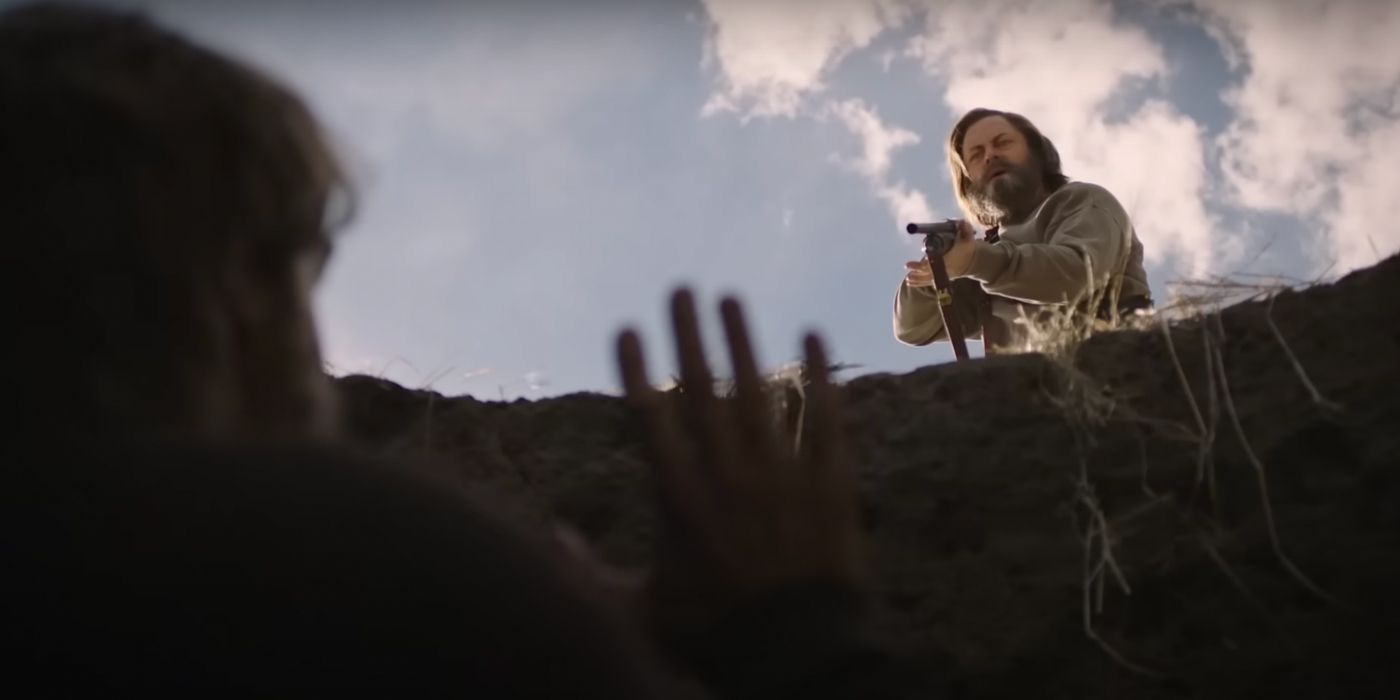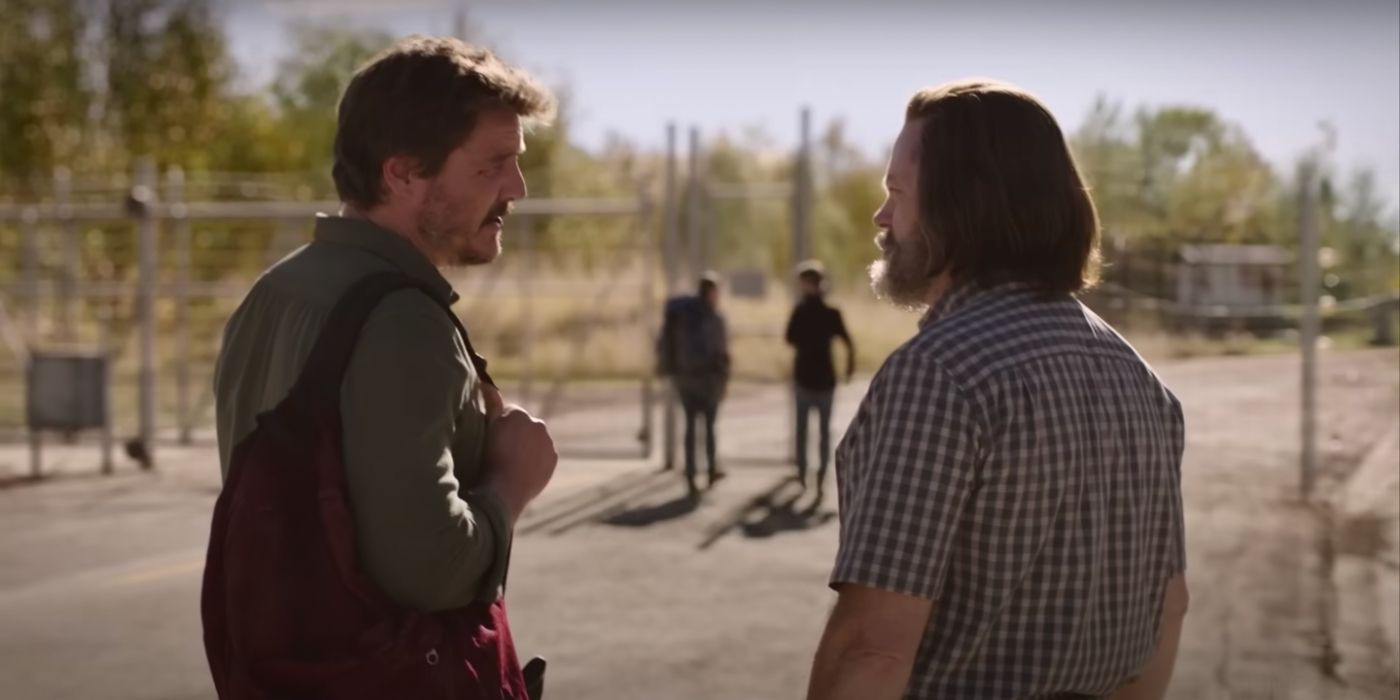Executive producer and writer Craig Mazin explains why The Last of Us episode 3 was such a departure for the show. While the story generally follows the adventures of Ellie (Bella Ramsey) and Joel (Pedro Pascal) after the two began their journey to meet the revolutionary Fireflies out west, their trip makes a detour when they agree to meet with Frank (Murray Bartlett) and Bill (Nick Offerman), two long-time survivors. Yet, as Ellie and Joel approach their town, the perspective of the episode shifts to focus on Frank and Bill instead, and their story spans nearly the entire runtime of The Last of Us episode 3.
While it came as a surprise, The Last of Us' Bill and Frank narrative is a genuinely touching love story that explores life and romance in the apocalypse in a way that few shows within the genre ever have. Rather than just depicting a tragedy, it explores the year-by-year progression of a relationship at the end of days. In an interview with Entertainment Weekly, Mazin explains the reason that the show decided to deviate so far from Ellie and Joel's story to instead center on Bill and Frank, despite it not being wholly necessary narratively. Check out his quote below:
"I had an instinct that we would probably need to take a breath as an audience after the first two episodes. I wanted a way to show some of the passage of time between Outbreak Day and the current day of the show without doing more of the same, of the world falling apart."
How The Last Of Us's Queer Romance Diverged From The Games
While episode 3 explores their love closely, The Last of Us changes Bill and Frank's story from the games. Originally, Bill actually survives his time with Frank and meets with Joel and Ellie. After saving Joel from a horde of infected, he, Joel, and Ellie work together to survive, before he offers the other two the opportunity to escape. Frank is already dead at this point in the story, as he and Bill fell into a major fight that left Frank running for the hills. After being infected, Frank chose to die by his own hand, rather than devolving into a runner or clicker. He wrote a note, proclaiming how much he hated Bill, and then took his own life.
HBO's The Last of Us took their love story in a very different direction. While Frank isn't a new character made for the show, HBO's version is the first time he has been seen alive on-screen. By the time Frank and Bill are introduced in the game, Frank is already dead, meaning that the show really had to put in work to give Frank a personality of his own, as there wasn't much to adapt. That meant giving Frank his own interests, his own desires for the town, and an entire relationship with Bill, as their love wasn't as explicit in the Last of Us game as it was in the show.
The Last of Us also took care to ensure that it avoided cliché gay tropes by creating a self-contained relationship that didn't revolve around straight characters. It also avoided making the love story tragic. Instead, it was simply a touching storyline that explored the reality of the apocalypse, while also giving Bill and Frank the opportunity to live to old age together. Additionally, rather than a typical narrative that kills off the gay characters and explores their trauma by showing off violence against them, The Last of Us respected both characters and showed off their love without displaying their bodies or disrespecting them in any way. The Last of Us episode 3 was a major departure, but it was a great change that was truly additive to the story.
Source: EW


